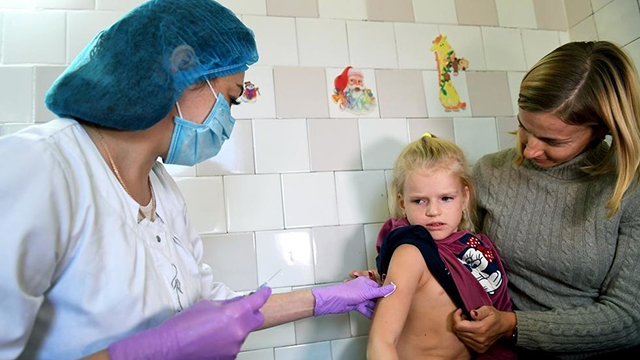Millions of children may be at risk of missing or delaying their routine childhood vaccines due to the COVID-19 pandemic. Dr Tina Ardon, a Mayo Clinic family medicine specialist, says she understands being thoughtful about taking your children outside the home for doctor’s visits during this time.
“The current situation with the novel coronavirus shows us how scary the world can be when we have a disease that we can’t treat or prevent,” says Ardon. “When we talk about childhood vaccines, the whole concept is that we have vaccines that can prevent serious illnesses that can be harmful and even fatal for our children, so we don’t want to lose that opportunity to stay on top of those things that we have control over right now.”
Immunisations keep children safe by protecting them from vaccine-preventable diseases like measles and whopping cough. They provide immunity before children are exposed to diseases.
One of the greatest concerns is the risk of children missing the measles vaccine.
Measles is a highly contagious virus and one of the most vaccine-preventable diseases. In the US, there were more reported cases of measles in 2019 since 1992. The World Health Organisation reported there were more than 140,000 measles deaths globally — mostly among children under 5 in 2018.
“We know that there have been outbreaks in measles here in the US, and that is a potentially deadly illness that we want to prevent. That’s a vaccine we’ve had a lot of attention on for some time, but we don’t want to get off track with the timing of that vaccine. I also think about pertussis, or whooping cough. That’s another disease that can be extremely harmful for our babies and our younger children, so we want to make sure we are staying on top of the schedule for pertussis, as well,” says Ardon.
Parents are encouraged to follow the Centres for Disease Control and Prevention’s (CDC) vaccination schedule to ensure that their child is protected from disease and illness. The CDC offers a complete list of recommended immunisations for all ages, including infants, adolescents, teens and adults.
Parents and caregivers who are concerned about bringing their children in for an appointment are encouraged to talk with their health care provider and paediatrician.
“Many clinics and hospitals have been weighing the risks and benefits of seeing children in the outpatient setting and making sure we have some good processes in place to make that as safe as possible, knowing how important these vaccines are for the child,” says Ardon.
